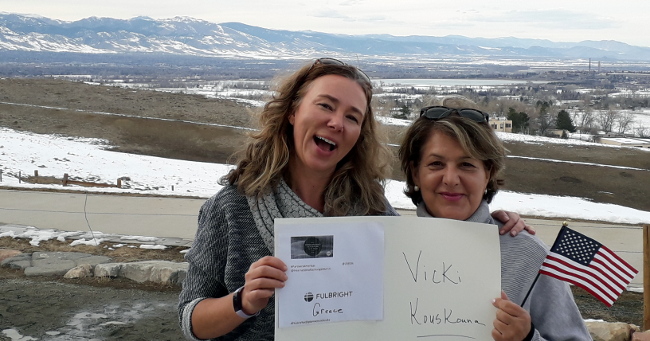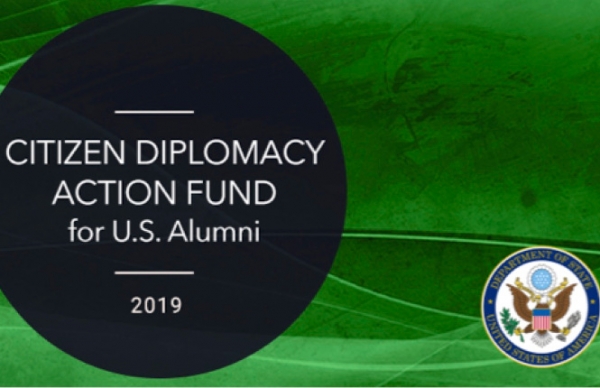A Greek team partners with a U.S. team of experts to develop resources that bring a stronger awareness of mental health needs to practices in educational settings and humanitarian services in classrooms.
Fulbright Alumni in Action—the project team came together as a direct result of the Fulbright alumni network.
Funded by the U.S. Department of State and implemented in partnership with Partners of the Americas, the Citizen Diplomacy Action Fund selects projects that advance key foreign policy priorities.
Projects take place both in the U.S. and abroad in collaboration with U.S. embassies in fifteen countries.
Following a competitive process, twenty-five projects that advance science and innovation, build civic participation and resilient communities, and promote inclusion in educational opportunities were selected.
Fulbright alumni in Greece and the U.S. joined together to develop resources that bring a stronger awareness of mental health needs to practices in both educational settings and humanitarian services, like classrooms and refugee camps.
The participants included:
From the National and Kapodistrian University of Athens, Vicki Kouskouna (Associate Professor of Seismology, School of Science, Department of Geology and Geoenvironment) and Maria Gazouli, (Associate Professor of Molecular Biology, School of Medicine); Marios Dakis (Community Support and Engagement Specialist, International Organization for Migration in Greece); and in the United States, Heather Ridge (Front Range Community Collage Westminster, CO), Erna Olafson (Associate Profressor of Clinical Psychiatry and Pediatrics, University of Cincinnati, OH), and Deborah Young (Executive Director at Americas Association for the Care of Children, University of Colorado, CO).

Heather Ridge and Vicki Kouskouna at snowy Boulder, CO, just before the pandemic
Collaboration between the Greek and U.S. teams started online in December 2019. Virtual collaboration continued until February 2020 when Greek team member Vicki Kouskouna traveled from Athens to Boulder, Colorado to meet with the U.S. team and to implement the first phase of the project. The team worked to identify best practices in social and emotional learning that educators and volunteers could use in different environments and situations. Senior leaders at the U.S. Child Traumatic Stress Network were consulted to receive and distribute resources for teachers, primary care providers, clinicians, and parents for children traumatized by refugee trauma, natural disasters, and other severe stressors. In Greece, team members prepared the workshop on earthquake preparedness and self-protection measures and presented it to three elementary schools in Athens.
During the on-site visit, team members Ridge and Kouskouna hosted a workshop for 30 elementary school students in Boulder on earthquake preparedness, including earthquake basics; self-protection measures before, during, and after the disaster; and post-earthquake trauma recovery. Emotional support strategies were integrated into the workshop. The same workshop will be presented by team members in Greece.
U.S. team members presented a train-the-trainers workshop on “Fostering Positive Interactions to more than 30 educators from 19 different schools in the Boulder District to help increase social and emotional learning, especially with students who have experienced trauma or have demonstrated stress behaviors.
Follow up project activities were to take place in May 2020 in Greece. However, due to the COVID-19 crisis, plans are suspended until it is safe and advisable to move forward. The team planned to meet first in Athens, where they would provide training for clinicians in treating trauma and grief in adolescence, and then travel around the country to meet with NGOs that support refugees. Plans included education about how trauma can impact the brain and the resulting behavior of persons experiencing trauma, as well as practices to support those individuals in any environment.
The team agreed to monitor the emergency situation, collect information from the general population and refugee camps in Greece, and expand the original project topics by incorporating the COVID-19 effects in the training (community health and special hygiene measures). In late April 2020, Partners of the Americas announced the grant period extension to July 2021.

